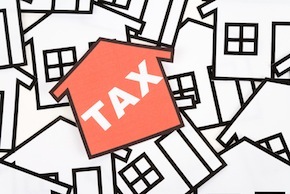All Categories
Featured
Table of Contents
It's vital to note that not every state supplies investors the opportunity to join a tax lien sale. In some states, a residential property with overdue taxes will go right to the tax obligation sale procedure. In the states that do offer actual estate capitalists the possibility to purchase tax liens, around 33 percent of the $14 billion in overdue tax obligations were liquidated (in 2017, as an example).
If you want the tax lien repossession procedure, you need to call an attorney so you understand and evaluate the risks of this kind of financial investment.
Profit By Investing In Tax Liens
Tax lien sales are one manner in which cities and areas try to redeem some of the public bucks they have actually spent maintaining these residential properties abandoned by exclusive proprietors. However, as we'll describe in this post,. Once building tax obligations are thought about delinquent, regional governments typically concentrate on offering notification of misbehavior and attempting to collect the unpaid quantities from the owner.
However, this process usually takes years. If a proprietor has strolled away and is unwilling to pay taxes or keep the property, the city needs to invest tax obligation dollars to preserve the property. These costsboarding up the structure, trimming disordered lawn and weeds, replying to fire and police gets in touch with the residential or commercial property, and moreadd up.
Owners that have fallen on tough times absolutely require every initiative to maintain them out of misbehavior and in their homes. how to invest in tax lien. Generally, if the property is uninhabited and tatty, we should think the proprietor has selected to abandon their interest in the residential property and that they are "resistant" to pay (though conditions earlier in the procedure might have forced their hand).

Take, for example, a single-family home where the owner has time out of mind walked away. For years the city government has had to tip in and get rid of trash disposed in the backyard, board up the doors and home windows, and respond to telephone calls regarding immoral activity on the property. All these solutions cost the neighborhood government taxpayer dollars.
In numerous states, those costs can be collected in the exact same fashion as the overdue taxes, however not in all. In a tax obligation lien sale (or tax certificate sale) the local government generally holds a public auction where the winning bidder agrees to pay the most money for the right to impose the tax obligation lien, starting with a minimum quote of at least the tax obligations possessed, plus applicable passion, costs, and prices.
When a government offers the tax lien they are usually marketing to an exclusive buyer the city government's authority to accumulate the financial debt for upfront settlement of the taxes owed. The customer's acquisition generally includes the ability to earn future interest, as well as recover related costs and prices incurred by the customer, if the residential or commercial property proprietor pays the tax obligation financial obligation.
Is Investing In Tax Liens A Good Idea
This is, fundamentally, privatization of a core federal government function: tax collection. Tax lien sales are specifically negative when it pertains to uninhabited, abandoned, and tatty homes due to the fact that they lengthen the period before a home can be relocated into the hands of a brand-new, more responsible owner. Personal tax obligation lien buyers hold the debt, however they do not have the titlethe legal right to possession of the propertyand in a lot of cases, they have no passion in obtaining it.

Considering budget cuts, city governments in several states have actually lowered internal real estate tax collection and enforcement initiatives and looked to tax lien sales as a quick mixture of profits. Many areas pick or are mandated by the state to market tax liens due to the fact that it outsources collection and usually generates very needed money previously in the collection procedure.
By moving the local government's rate of interest in and enforcement of the tax obligation lien to an exclusive customer, regional governments shed much of their flexibility: flexibility to obtain uninhabited residential properties that the exclusive market doesn't want, or to assist the proprietor prevent shedding their property. With uninhabited homes, there is a much higher opportunity that the personal buyer isn't interested in the residential property itself.
Tax obligation lien sales can cause harm in historically disinvested locations (buying tax liens for investment). In a clinically depressed real estate market, fewer owners are able to redeem the quantity of the financial debt marketed to a tax lien buyer - how to invest in tax lien. These locations are ripe for a various kind of tax lien investorspeculative owners seeking to get buildings on the affordable by confiscating on the residential or commercial property tax lien, bleeding what little bit equity is left by renting a second-rate property to vulnerable occupants, and afterwards deserting the residential property when they've made back their financial investment

Not all state regulations give neighborhood governments the power to interfere in this cycle. In either case, the building stays uninhabited and in limbo, all the while imposing considerable expenses on its neighbors and taxpayers. It's understandable that lots of neighborhood federal governments transform to tax lien sales since they help fund essential civil services.
Tax Lien Investing Colorado
If the local federal government instead offers the residential property (aka the "tax act"), instead of the tax obligation financial debt, after that they are in control of what occurs to the building and the enforcement process if the proprietor continues to not pay the real estate tax owed. The government will certainly give the proprietor an affordable time to repay the tax financial debt, after which the government will certainly foreclose its passion in the tax obligation lien and the owner's right of redemption.
From their creation, these auctions were venues for capitalists to make money through exploitation. investing in property tax liens. In very early 20th-century cities, well-known "tax sharks" like Chicago's Jacob Glos and New York's Charles Wiltsie collected ton of money by getting up scores of tax obligation liens on homes, billing their owners expensive total up to get rid of the lien, or waiting up until the deadline for settlement passed and asserting the deed
Calls to abolish tax obligation lien sales and overhaul tax misbehavior regulations have actually occasionally emerged. Usually, they have been available in response to instances of bad, commonly elderly homeowners that shed their homes to dishonest tax obligation buyers over tiny tax obligation financial obligations. are tax liens a safe investment. But with a few exemptions, state legislatures have actually stood up to architectural reforms.
Those that have repaid their home loans (mainly senior citizens or persons that had inherited a family members home) need to likewise locate the cash to pay home tax obligations. This discusses why 70 percent of the homes cost tax lien sales are owned outright. It is well past time for states to adopt an even more humaneand much more effectivesystem for home tax enforcement.
Table of Contents
Latest Posts
Excess Proceeds Texas
2021 Delinquent Tax Auction
Tax Lien Investing California
More
Latest Posts
Excess Proceeds Texas
2021 Delinquent Tax Auction
Tax Lien Investing California